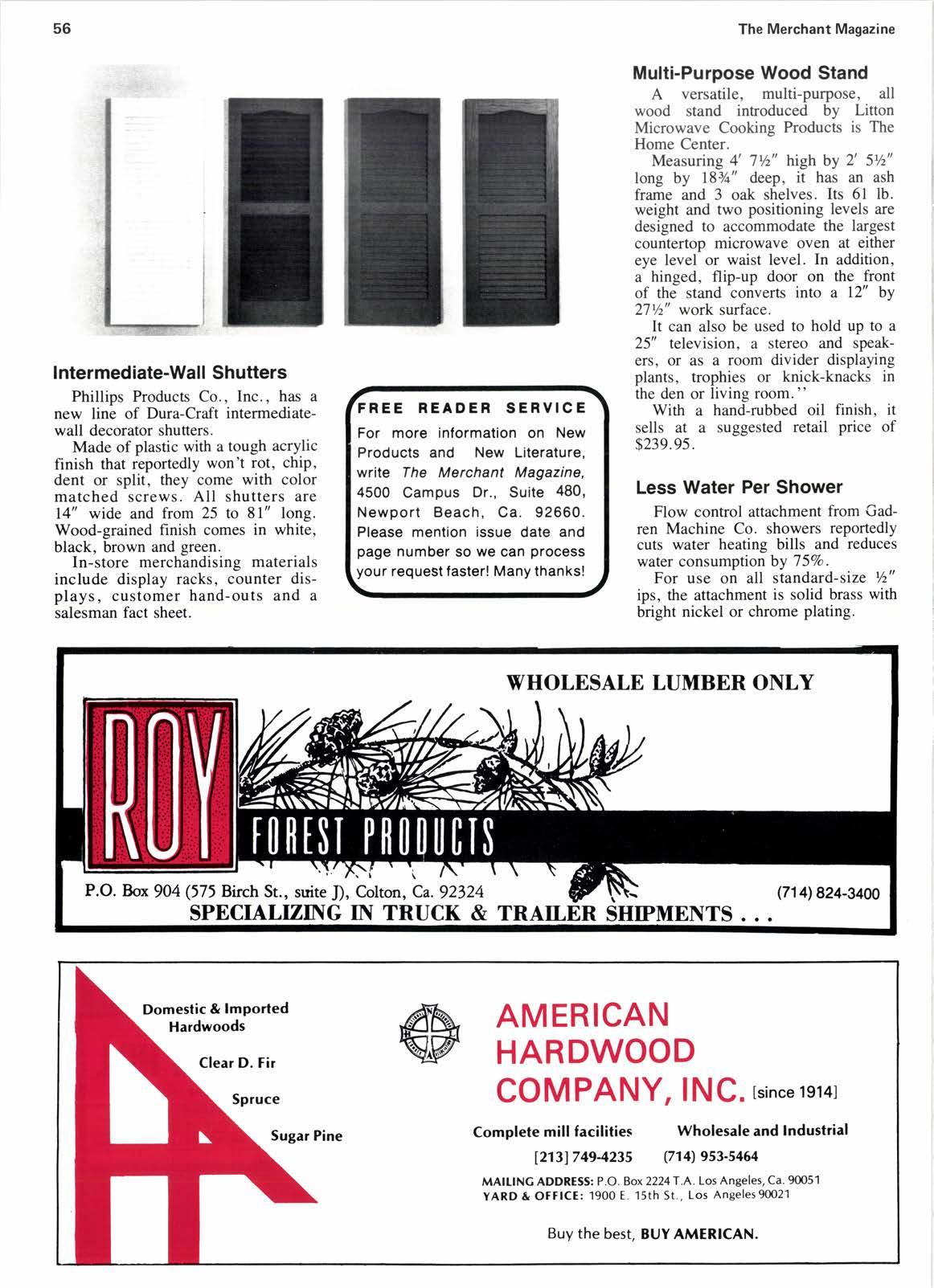
2 minute read
At WIW!/ You've gol the top hond on Building Mqteriols !
*Being a direct tax credit this figure should be approximately doubled to indicate the pre-tax advantage.
Keep in mind that several variables develop when you are considering the best method for your firm to use. One is a previous business philosophy regarding capitalization write-offs that only you can decide. The second is the philosophy of the local Internal Revenue office which has jurisdiction in your area. Any firm which has undergone audits understands the lack of consistency from office to office and sometimes auditor to auditor.
For example, you might find item numbrs two and three difficult to defend in one area and acceptable in another. Item one, four and five, however, appear to be pretty acceptable throughout the nation.
Many users do not pay any use taxes on the hardware. Their justification is: a) out-of-state delivery, and b) the system is used primarily to generate service for the sale of taxable items to the end consumer. I am not
(Continued on next page)
When you come to Mollco for building mqferiols lhere's no gomble. You hold the top hond. You gel whof you need in dimension, glu-lom beoms, fimbers, Sunrise boords ond Simpson Strong-Tie Hongers. You get the specie or type, grode ond size in ihe quonfity you con hondle ond oll qt lhe righl price fo turn o prof it for you. Give us o coll!
Arizonian Heads NFPA
A. Milton Whiting, chairman of the board and president of Kaibab Industries, Phoenix, Az., is the new pres. of the National Forest Products Association.
He succeeds William R. Haselton, president and c.e.o. of St. Regis Paper Co., who was elected chairman of the board. William H. Stimpson, Gulf Lumber Co., Mobile, Ala., is lst v.p.; Donald R. Deardorff, pres. and gen. mgr. of Fourply, Inc., Grants Pass, Or., is 2nd v.p. and treas.
The 78th annual meeting in Rancho Mirage, Ca., was characterized as one of anticipation based on hope that the new political climate in Washington, D.C. may see a reversal of policies and programs constraining U.S. timber supply and the productivity of its forest soils.
In resolutions approved by the NFPA Board of Directors, the new Administration and Congress are urged to correct present forest policies, settle use of National Forest lands, control federal spending and, if steps are taken to stimulate the economy, to place particular emphasis on housing needs.
At the meeting, Haselton urged industry members to mount an aggressive program to develop champions for its views among the new federal influentials and decision-makers. "Our political leaders," he said, "and ultimately the consumers of wood products and housing must be made to understand the relationship between timber supply and their way of life. They need to comprehend the tremendous opportunities we have to improve forest productivity to help create a new prosperity for all our people. "
WESTERilER and NFPA'S new president for 1981, A. Milton Whiting (left) is conoratulated bv his predecessor William R. Flaselton. new chaiiman of the board.

Expensing A Computer
(Continued from previous Page) suggesting one way or another, just passing on information.
According to Revenue Procedure 69-21 of the Internal Revenue Code, IRS generally takes the view that software should be amortized over at least a five-year period unless the user demonstrates and can prove that the software has a more limited life. The users who choose to write off software in the year of purchase are of the opinion that enhancements and modifications made in order to tailor the existing programs to their particular needs will change the usage of the software to such a degree that they are justified in accelerating the amortization. In most "turn-key" systems, there are many programs and reports which, although part of the purchased software "package," are not used by every company purchasing a particular system. This, too, may justify accelerated amortization in the user's mind.
Any decision regarding your business approach to depreciation, amortization, and expense, should be discussed in depth with your C.P.A. (or accountant), tax advisor, and Your company financial management.










